Full Moon: Lunar magic & its myths
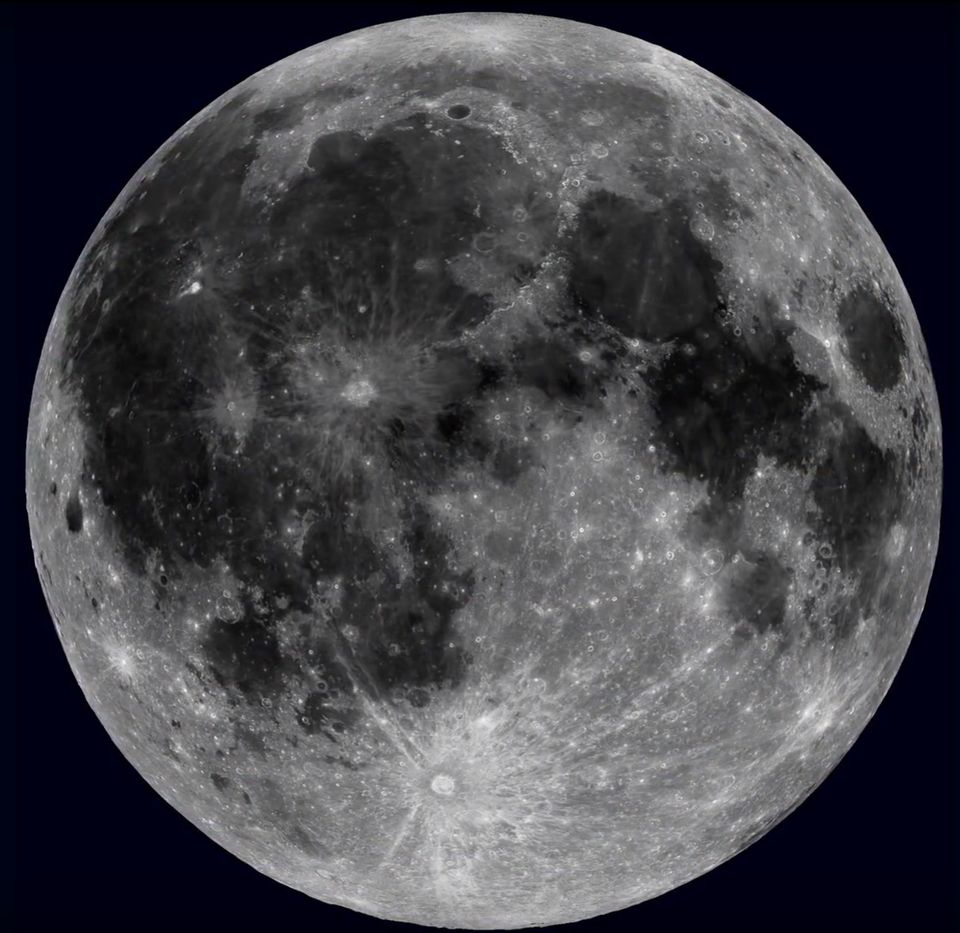
Hello and good afternoon. It's Friday. For some people, Good Friday. But any full post I could write about my ongoing bizarre relationship with Christianity is going to wait for some week far, far away, when I'm ready to confront it directly. Not yet. In any case, this week I've wanted to write about the moon.
Let me preface this with a half-silly, half-serious word I've created to define my interest in all matters of the celestial firmament: astrolomy. This is a portmanteau of astrology and astronomy, used on the basis that I (non-professionally) study the stars, planets, and other heavenly bodies or phenomena both from an extremely un-scientific, symbolic angle and from a scientific, empirical angle. The mythology of the night sky is meaningful to my life and rites, but so are the night sky's physics and primordial history. Despite the fact that I'm a writer and music-maker, the oddball muse Urania — she who rules over neither lyrics nor music, but star-studies — was always my favorite of the nine. I also very much adopt the view that concrete predictions about the future and that rigid personality rules are not the point of astrology, contrary to scientific skeptics' views — and should also not become the point, contrary to what some astrologers allow themselves to imagine, especially those who want to turn a profit more than they want to help people. Now of course, astrology itself used to refer to things that we call astrology today, and also to things that we call astronomy; but because of the contemporary division, I think it's best for me to use a clearer term to signal that I've stitched them back together. Hence, astrolomy.[1]
Some other time, I'm going to delve into exactly what I think of the most prominent non-scientific, divination-oriented things that could fall under the astrolomy heading — the "fake" topics about the stars and planets that many people in my/our society could name, like horoscopes and natal charts, or the overall belief that celestial movement has any effect on terrestrial affairs. But my answer to whether these things are "fake" or "real" varies not only by the spirit in which someone is practicing them, but also by the specific celestial bodies in question. So I will come back to natal charts, etc. some other week; right now I want to start with reflections on the moon, as that is just one body, and it also figures very, very centrally in my ritual life.
Why I am a moon witch
Lunar magic is an ill-defined field, and I will not try to impose boundaries on it anyway. Worldwide, the moon's cultural importance varies significantly by focus and by degree. Even just among modern witches, animists, pagans, occultists, and so on, the moon can have ritual applications for some people that it does not carry for others. I only know I'm a moon witch insofar as my work with the moon is older than my interest in hedgecraft, in death work, or even in sex magic; my work with the moon is older than my realization[2] that I was a witch. I have loved and closely watched the moon as long as I can recall; even as a child this went in equally literal and symbolic directions, given how I wanted to become an astronaut in order to walk on the moon, but also in fourth grade my friend and I accidentally started a short-lived worship practice for a lunar deity simply named "Dark Moon." My friend's mother was very, very unhappy about this.
Back then, I didn't know what I was really doing, but nowadays my work with the moon happens much more intentionally. I worship the moon a bit, perhaps, but the better notion might be that I revere it as a being that I can embody. This is not about gendered cosmology; this is something within the context of my sex magic and my D/s dynamic. The sun is my (satanic and pagan) god, the center of power, and the moon both reflects the sun's light and possesses a hidden, secret side, as well as its own gravity that affects the earth's tides as the sun largely cannot. As the submissive partner to my owner, I reflect what is thrown upon me although I am never completely overtaken by it, and I control certain things that he does not. I perform this role not as a man, but I could if I wished; in this cosmology the moon is only a woman because I, situationally a woman, am the one who embodies it. The sun is only a man for me because in my life there's a particular man who represents the sun.
Accordingly, although I'm not ritually devoted to any lunar deities from specific cultures today, I do have a personal fondness and affinity for lunar deities of any gender — as has always been the case for me, and in fact Dark Moon was male — with Selene, Artemis, Thoth, and Máni being some favorites. I also follow a solar calendar for annual time-keeping but a lunar calendar for structuring monthly activities, including newsletter focuses but also many other things like when to actually do divination, when to work hard and when to take more breaks, when are the best times for cooking and when are the best times for rites of bondage and pain; some of these are not really rules that I stick to, but they are benchmarks for balancing how I spend my time. Meanwhile, I wear many moon shapes in my jewelry, I greet the moon (aloud or in my heart) when I see it in the sky, and the multicultural association of the moon with rabbits or hares fits very well into my sense of kinship with those animals. I am in love with the interplay of moon and sea; I think I live just too far from the sea to become a sea witch as much as a moon witch, but the potential is there. I am always looking for new ways to bond with the moon, my celestial counterpart.
But there are some mythical functions of the moon that I have mixed feelings about, and I want to discuss those here, too.
Is the moon an agricultural tool?
Throughout history and the present day, there have been people swearing by the moon's phases as a guideline for when to perform certain activities on your farm or garden. This ought to appeal to me in theory, since I garden and I apply lunar structuring to other things in my life as mentioned. The lunar agriculture advice you find is never exactly the same, of course — it's folk wisdom, like it or not — but the most common form I run into is some idea that because the moon pulls on the water of the ocean, it necessarily must pull all water and liquids on our planet, thus when the moon is waxing, water in our crop fields and gardens is also rising upward from the ground/through the plants, and when the moon is waning, water is flowing back down into the roots and soil. In this framework I see it generally recommended that you plant above-ground crops during the waxing moon, especially at the first quarter, and that you plant below-ground crops (e.g. edible tubers, roots, bulbs) during the waning moon, especially at the last quarter; likewise you should harvest or take cuttings from plants you want to keep when they are still going to get plenty of water to fuel their growth, and you should weed plants you don't want when water is on the retreat and thus the plants won't grow back so easily.
I think it often gets more complicated, but these are the starting elements. The problem I have with this whole mindset is threefold, however:
- There is not actually any empirical evidence for groundwater working this way.
- If it did work this way, this is still not how the actual ocean tides work. High and low tide occur daily, in fact twice daily each, as the moon orbits us. The moon phase makes a difference only to how extreme the high and low tides are; when the moon, our planet, and the sun form a syzygial line during the new and full moon phases, these are the spring tides (intense highs and lows)[3], and when our three bodies form a 90º angle during the first and last quarter phases, these are the neap tides (milder highs and lows). If I chose to follow all these factors for when to plant, reap, and weed, that would make my gardening schedule so complex that it would be very hard to maintain.
- What is a very good metric for how water is going to behave in your field or garden? Actual rainfall, humidity levels, and how much the sun or wind will dry things out. I'm still learning how to even just plan gardening activities around these factors, but in my opinion it matters more to listen to the guidance of the meteorological elements than to the moon's much less clear influence.
Now, this is not to say I don't understand why people develop these ideas about the moon and agriculture, or why they choose to act accordingly. If you live in a community where irrigation for your crops is fed by a local riverway, and if this part of the river is within about 100 km of the sea, the river may be tidally affected by the nearby ocean water, and so might the water levels of what you've diverted from the river. At high tide, especially during the spring tides, water can actually flow into a tidal river; this upstream-flowing wave is known as a tidal bore. Examples of tidal rivers include some gigantic ones like the Amazon and the Nile, but also smaller (but still major) ones like the Thames. People living in communities around tidal rivers for millennia would have to notice that the moon would influence their chances of sufficient or even excessive water for whatever they were trying to grow. I think it's no accident that some lunar deities are also agricultural deities, or that they are often linked with one another by certain bonds.
But even with this understanding, I still doubt that it makes much sense for people to follow lunar agricultural techniques in the way that they're currently articulated, and in many parts of the world it would also have never made much sense. At least — not if the point is to materially and directly increase the chances of your crops' success. Once upon a time, I read some argument (I wish I could remember from whom) that the real merit in using the moon for your agricultural practices is actually just in creating a steady schedule, i.e. the way I use lunar structuring for other parts of my routine life.
That much makes sense to me, and in my own cosmology it thus seems most fitting for me to lay special emphasis on garden activities during the first quarter — a time I associate with growth as a whole, and with doing physically vigorous work — but the real time of the month doesn't matter per se, and rather I just try to guarantee that about once per month I do some really concentrated garden tasks to catch up on whatever I should already have done. The nature of the tasks is not especially important either. And ultimately, even this guideline for myself is very loose. Last weekend was close enough to the first quarter that I used those days as a reference for getting on top of some spring garden prep, but snow hadn't retreated far enough for me to do certain tasks, and I was tired, and the wind was chilly; so I took care of what I could, but the rest is probably going to happen tomorrow, and if conditions still aren't exactly right, I will have to do more even later in this moon cycle, and for all I know there will be some new must-do thing that comes up before I reach the first quarter again. All in all, I think that if lunar agriculture helps various work get done, so be it, but besides treating the "rational" explanations with a grain of salt, following any schedule like that should come secondary to asking whether the more tangible, immediate conditions are right for performing this work, or not.
So now, speaking of things that I use the moon to keep track of, but that I really don't consider very well-grounded in consensus reality, and for which the "lunar influence" should be considered secondary to people's lived experience and needs...
Is the moon a menstrual calendar?
No.
But this is not a simple "no." Some animals, especially sea creatures, seem responsive to moon phase for aspects of their life cycles, and even though research has largely not given us a good explanation as to why this is the case, a) there are some good hypotheses out there for some situations, and b) it's all a clear example of how just because there isn't an explanation for something doesn't mean that nothing is happening. Menstruation is very rare across most species, and our fellow primates who menstruate usually have cycles a bit longer than humans', but as an extremely broad observation, I think we can fairly say that at least where human menstruation is concerned, there's at least a very, very interesting coincidence with the cycle aligning approximately with how long it takes the moon to go through all its phases. Why does that coincidence happen? That's not the question we should be asking. Does the coincidence plainly exist? Yes. So I choose to ask the question of whether we can derive any value or meaning from whatever is going on here.
In my case, I do derive some meaning. This is once again not about gender. It's me making sense of my body, as someone who has a uterus, currently menstruates, and is content with — not dysphoric about — these things. And more precisely, I'm someone whose menstrual cycle really does happen to coincide very elegantly with the moon phases. I start bleeding on or just a few days after the new moon, I finish just before the first quarter, I ovulate or am essentially fertile (assuming any fertility to begin with) during the full moon, and I start to experience pre-menstrual malaise around the last quarter. At this point, I can't remember how long this has been going on, but it's gone on for a long time; what's really interesting is how I haven't always had this pattern, but I have for most of my adult life as a dedicated ritualist ever since stopping testosterone brought my periods back, and the only interruption to this pattern was for roughly the duration of living at our last place, which depending on your preferred terminology was either mold-infested or outright haunted. As long as I've had some baseline level of mental well-being and simultaneous commitment to witchcraft, my body seems to keep trying to match the moon in a certain way. Maybe it's just a psychosomatic effect, but if so, what a strangely powerful one.
Whatever's afoot there, however, I often shy away from discussing my lunar menstrual schedule at length, because although it's very convenient for me to keep track of when to expect certain things — and although it feels very appropriate for me as a person who ritually embodies the moon in general — bringing this topic up can veer dangerously close to the kind of "women's mysteries" talk that goes on in trans-exclusionary witch circles, and that completely turned me off when I was a trans man.
I still abhor the woman-womb-moon meme, quite frankly. It happens to work extremely well for who I am right now, and the relationship that I have with my body right now, but the right now factor only further illustrates to me how it is not an appropriate or valuable framework for many people.
There are women who have uteruses whose menstrual cycle does not align tidily with the moon's phases, and this is fine. They aren't missing out on some special kind of magic by "failing" to bring such alignment about.
There are women who do not have uteruses — whether they are trans women, intersex, or have had hysterectomies — but who still experience a monthly hormone cycle. Yes, transfeminine people who take estrogen will typically develop monthly patterns of symptoms that match those of cis women, except for the actual bleeding part. And naturally, some of these people's cycles might still coincidentally align with the moon.
There are people who have uteruses who are not women, who might practice lunar magic — or who don't, but in either case don't want to bring it anywhere near their internal organs. You do not have to feel physically linked with the moon to love it, worship it, be guided by it, or seek to embody its many qualities that have nothing to do with menstruation.
There is even nothing saying that a cis man can't feel an equal degree of connection with and reverence for the moon as people of other gender groupings can. Again, some lunar deities are men.
I walk an interesting and special path because of how I happen to currently be a woman, to currently enjoy having my menstruating uterus, and to find that my menstruation seems to naturally carry some lunar association. But this is not my destiny because of my gender, and others who walk other paths are neither lesser nor better than me. And one day, when I have entered menopause, I will not be on that path anymore either, regardless of what my gender has become by then. There is no scientific cause to support the woman-womb-moon meme, there is no (spi)ritual necessity to support it, and I simply don't. If the moon brings madness, then that madness need not be strictly considered hysteria.
But what of the madness itself? What of lunacy?
Is the full moon a harbinger of insomnia, violence, and wildness?
Here it once again feels tempting for me to fall back to the drum I've beaten in the above sections about an absence of material, scientific evidence. Indeed there is a severe lack of such evidence for the full moon doing anything particularly unusual to human beings that would make us less able to sleep, more likely to commit violent acts, or being driven toward some amorphously-defined lunatic "madness."
But in this one respect I feel obliged to lean less on the scientific consensus, and more on common sense, which is not always the same thing. And in fact, the scientific consensus is even being nudged in new directions on the question of "full moon restlessness." In 2021, the following paper was published in Science Advances: "Moonstruck sleep: Synchronization of human sleep with the moon cycle under field conditions." There ought to be more studies attempted in this one's wake, but the results here are fascinating, particularly since the apparent lunar effect was heightened in test subjects with less pervasive electric lighting, yet also not completely absent in subjects surrounded by routine artificial light.
This follows on a 2013 study published in Current Biology: "Evidence that the Lunar Cycle Influences Human Sleep". Here, analysis was performed on other sleep studies that were not intended to cover the lunar effect hypothesis, and therefore the subject participants' sleep patterns could not have been affected by knowing that a lunar effect was being sought; and in the course of these studies they were not even necessarily aware of the lunar phase. Variations in some data, including lowered melatonin levels, correlate with the full moon. So I think that both this study and the later one are more conclusively in "the lunar effect's" favor than previous studies.
But again, there should be more studies than just these, because they are not completely perfect, especially not the 2013 study. And yet conversely: no matter how interesting all of this work seems, I think that even without such study results I want to call into question one assertion that comes up when someone argues that the full moon does not affect human psychology in any way. Namely, the argument goes, if the full moon has any mental health effect, it would have to be from the change in light level, with a brighter-lit night making it harder to sleep and easier to sneak around outdoors, but the full moon is only 10% brighter (or some such statistic) than it is as a crescent (or what have you), and that can't possibly make a difference. And to this I say: well, all right, but have these people ever paid attention to how the world looks at night when it's bathed in full moonlight?
The difference in light level is not insignificant. I find this utterly self-evident. Living in a rural area I can see substantially better at night outdoors in the full moon's light than on other nights of the month. When the moonlight enters my bedroom, it is bright enough to affect how easily I fall asleep and stay asleep. That is only me, not a whole population, but I really experience this, and I hear the same subjective testimonial from a fair amount of people I know. It might be difficult to reproduce under close scientific controls, but something — however ineffable — is going on regarding brighter moonlight and optimal sleep conditions.
Having said that, I'm not going to now claim that such phenomena automatically lend credence to people's perception of upticks in mental hospital admissions or violent behavior during this time of the month. If statistics indicate otherwise, then such purported trends probably aren't happening, and even if statistics support a correlation between moon phase and these events, correlation doesn't amount to causation. There are so many other variables involved at that point.
But I am again not interested in the truth of such things, or in what the cause for that truth would be. I'm more interested in why people believe this is occurring. If someone feels less rested, they might feel less prepared to cope with stressful incidents, therefore (besides confirmation bias if they already expect the full moon to affect people) they might perceive others' behavior as "wilder" or "more violent" than they would at other times of the month.
And as I said, think of how the world looks beneath the full moon.
The eerie glow. The blue-grey-green shadows of things. The twilight-deeper-than-twilight. It is no more than sunlight reflected back to us by the moon's wan surface, but it is also nearly an un-light — enough to see by, enough to know things, but all slantways, out of joint. The things we see may be their real forms, or they may be doppelgängers.
I do not completely know in what sense I "believe" in an Otherworld, but whatever and wherever it is, it would surely be lit in a similar way. If a veil separates that world from ours, then to me there could be no other time of the month when that veil would grow thinnest, barring when certain solar holidays happen to land — or those apocalyptic moments called eclipses, whether the moon turns to blood or the sun turns to darkness. Wolves don't howl at the full moon, rather they howl on any night they please; but when the moon is full, those howls may carry the greater weight of the Wild Hunt.
I think that even if the full moon only biologically affects our ability to sleep, that one quality and the uncanniness of the light are at least enough to change our moods, our focuses of mind. To awaken the poet's tongue and the artist's eye, and to risk the kind of madness that comes from such things. If I wished to break the law outdoors, in all likelihood I would do it by the new moon, cloaking my actions in maximum shadow, but that assumes my actions had any calculation behind them, instead of run-ragged, sleepless impulse.
I think the full moon creates an atmosphere in which it's easier to imagine beautiful, terrible, and magical things taking place. And the imagination itself is what is truly magic.
Keeping our rites in the moonlight
My concluding thoughts here are that the moon is its own meme these days. Spend just enough time on social media and you'll find the people who say the moon is their wife, and so on. Merchandise targeted toward even remotely witchy people is very keen on lunar imagery, and I don't know what it says about me that I indulge this readily in my consumer habits. Maybe the colonized-and-colonizing culture in which I live has lost its direct religious connection to the moon, but some lunar animism abides. And as we — and our planet — would benefit so greatly from returning to animist ways, we might as well begin with things that sit squarely in front of us. The moon is one of those things.
In this context I want to keep up my lunar work, immerse myself further in the ghostly rays, dream of setting my fleshly foot on the rocky surface while also dreaming of encountering the moon as a pure form, a concept, a divine entity in which it is right and rite to find myself. And I want to dance naked in the full moon's light, if even just once.
And from now on, having written all of this, I think I need to start capitalizing our satellite's name, and likewise our star's. The Earth is not the center of the universe, so if it receives this privilege, why not the Sun? And so: the Moon.
The silver light, which, hallowing tree and tower,
Sheds beauty and deep softness o'er the whole,
Breathes also to the heart, and o'er it throws
A loving languor which is not repose.
— Lord Byron, Don Juan, Canto I
[1] My not-so-inner linguist weeps at how this choice erases the similar but distinct Greek suffixes of -logy and -nomy, but I can't think of anything better.
[2] To be clear, I do not see my identity as a witch like it's something I've always been and the potential just had to be "awakened." I believe this is a path that people send themselves down, and they will always find some kind of powerful ritual energy if they go far enough, because this is accessible to all people, whether you call it witchcraft or something else. However, I say I "realized" I was a witch because at the outset I had not consciously chosen to walk this path; I'd stumbled onto it years earlier, and if there was any choice in my realization, it was the choice not to walk back the way I came.
[3] And it's "spring" as in a wellspring, not as in the season. There is annual variation in high vs. low tide extremes as well, but the governing factor is whether things are at apogee or perigee.
Thank you for reading this astrolomical foray. Next week is a post for paid subscribers only, taking a deeper dive into the state of our planet and society than what I've done in some of Salt for Eclipse's first introductory posts. But after that, we'll be back to several more public posts, starting with matters of indulgence. And along such lines, keep your eyes peeled and inboxes open for a special not-on-a-Friday announcement later this month about something that will hopefully be a positive alteration in your free reading experience!
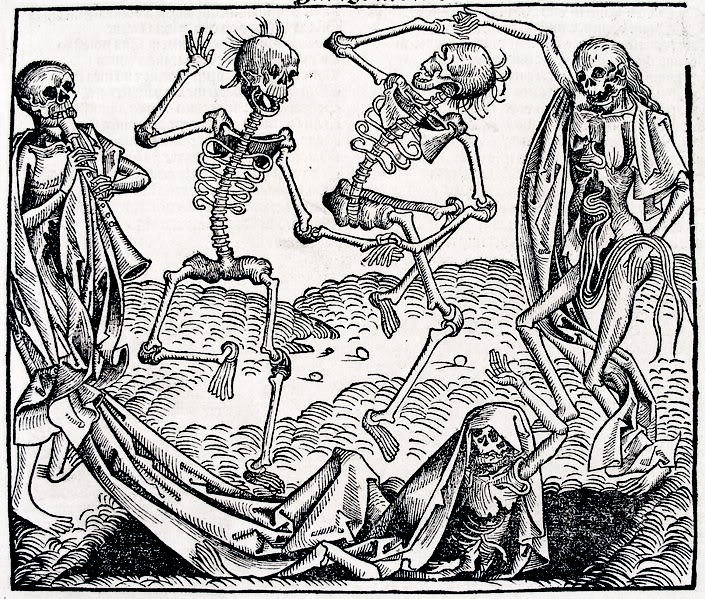
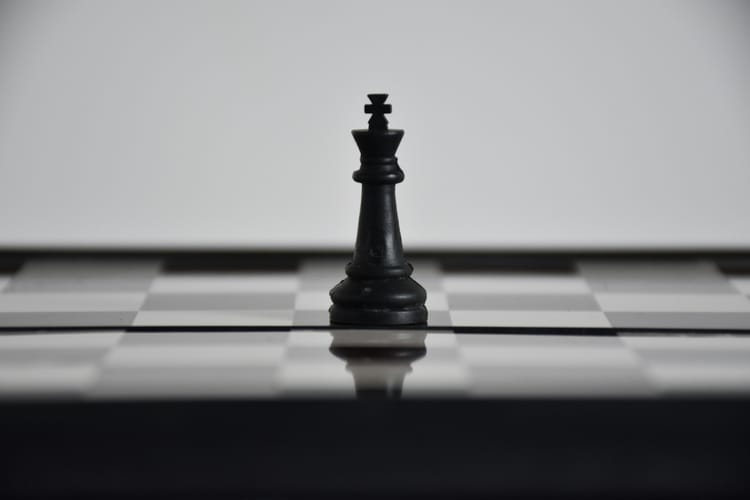
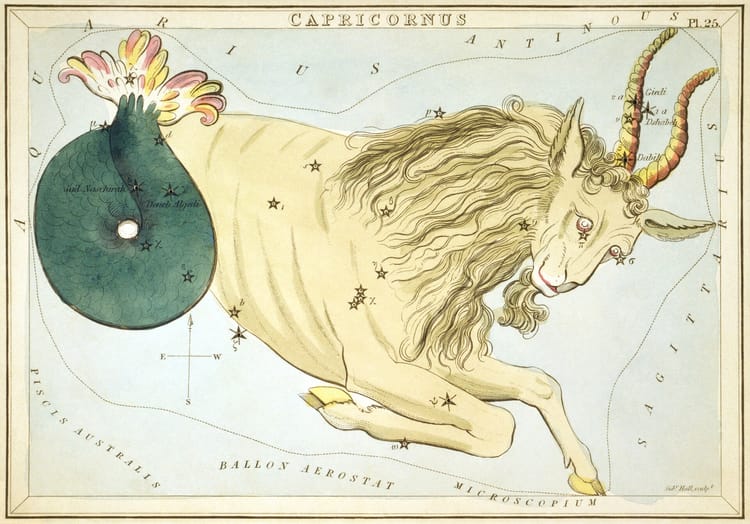
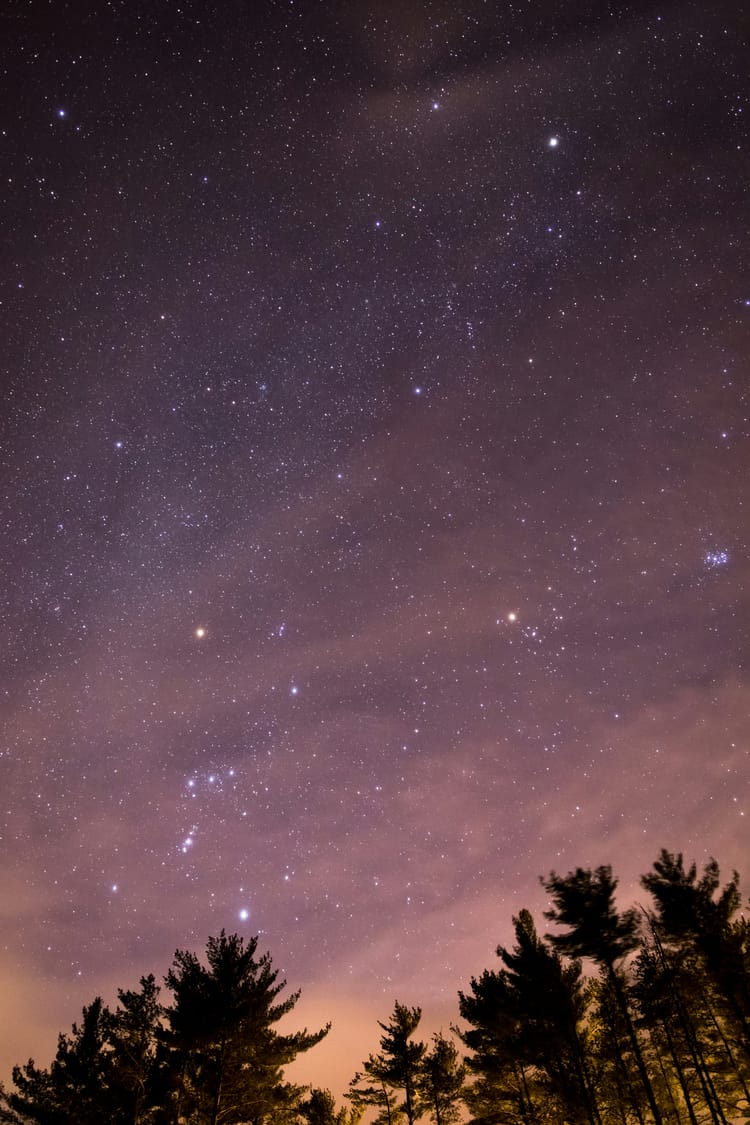
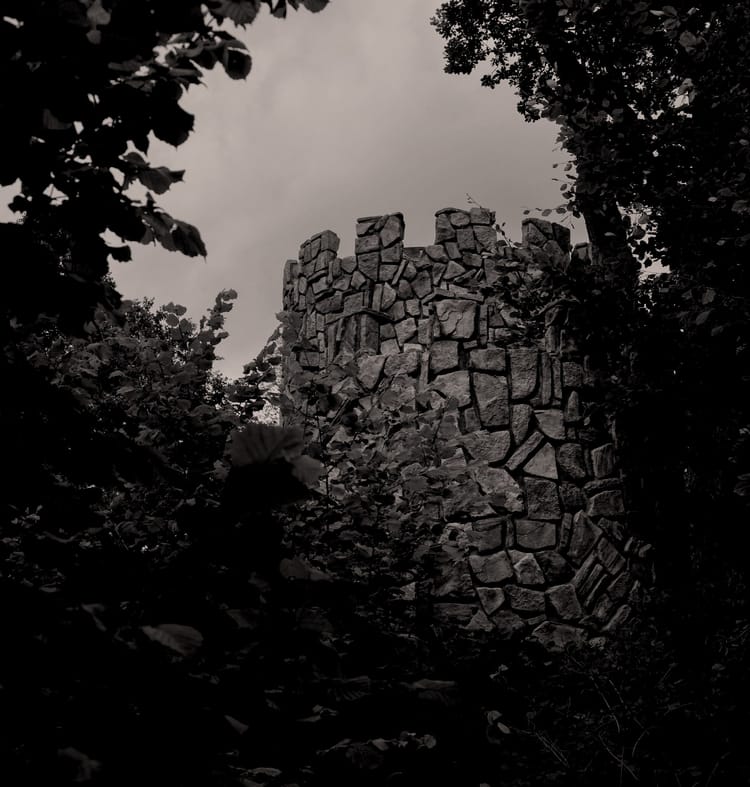
Member discussion